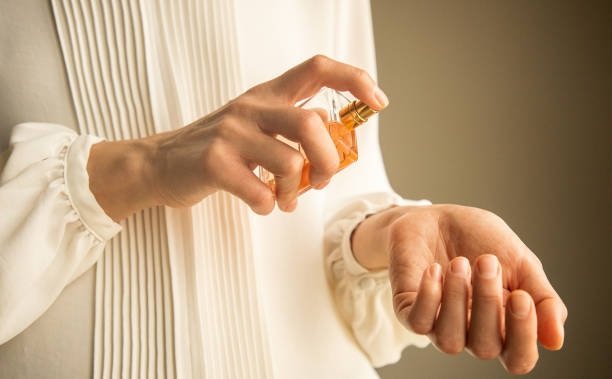Scroll through fragrance TikTok or Instagram for five minutes and you’ll encounter countless influencers making bold claims: “This perfume lasts 24 hours on me!” “Three sprays and I’m still smelling amazing the next morning!” “Beast mode projection all day long!” But when you buy that same supposedly long-lasting fragrance, it barely makes it past lunch. What gives? Are these influencers lying, or is something else going on?
The uncomfortable truth is that fragrance longevity content often ranges from misleading to outright deceptive. Some influencers are indeed exaggerating for engagement and affiliate sales. But even when they’re being honest about their own experience, they’re usually leaving out critical information about why a perfume might perform completely differently on your skin. And that omission—intentional or not—costs you money and creates frustration.
Let’s expose what fragrance influencers won’t tell you about perfume longevity, break down the real science behind staying power, and give you actionable strategies for making fragrances last based on your actual skin type and chemistry.
The Influencer Playbook: Why You Can’t Trust Longevity Claims
First, understand the incentives. Fragrance influencers typically earn through affiliate links, PR packages, and brand partnerships. Their income depends on you clicking “buy now,” which means they’re motivated to emphasize the positive and downplay the negative. A perfume that “projects moderately for 4-6 hours” doesn’t drive sales like “insane longevity, lasts all day!”
But the deception goes deeper than enthusiasm. Here are the specific tricks that make longevity claims unreliable:
Over-application: When an influencer says “three sprays,” they might actually be doing six or seven. More importantly, they’re often applying to multiple high-performance areas—behind ears, pulse points, hair, clothing—while claiming it’s just “a few sprays.”
Noseblindness denial: Your nose adapts to scents you wear continuously, a phenomenon called olfactory fatigue. After 20-30 minutes, you literally can’t smell your own perfume as strongly as others can. Influencers experience this too, but often interpret still catching occasional whiffs as “it’s still projecting strongly!” when actually it’s just become subtle.
Climate and environment ignorance: An influencer in cool, dry Stockholm will get completely different performance from the same perfume than someone in hot, humid Mumbai. But this critical context is rarely disclosed.
Skin type silence: This is the big one. Skin type dramatically affects perfume longevity, but most influencers never mention whether they have dry, oily, or combination skin—information that’s essential for predicting how a fragrance will perform on you.
Unrealistic testing conditions: Sitting at home filming content is very different from a full day of commuting, working, exercising, and living. Perfumes perform differently under real-world conditions versus controlled filming environments.
Cherry-picking performance: Influencers test dozens of fragrances monthly. They share the exceptional performers and quietly skip the disappointments, creating a false impression that every hyped release delivers incredible longevity.
The Science of Staying Power: What Actually Matters
Perfume longevity isn’t mysterious—it’s chemistry. Understanding the factors that influence staying power helps you make informed decisions rather than relying on influencer hype.
Concentration matters, but not how you think: Yes, Eau de Parfum (15-20% concentration) typically lasts longer than Eau de Toilette (5-15%), but concentration alone doesn’t guarantee longevity. A well-formulated EDT with strong base notes can outlast a poorly constructed EDP with weak fixatives.
Base notes are everything: Perfumes are structured in layers—top notes (what you smell immediately), heart notes (the middle development), and base notes (the foundation). Longevity comes from base notes. Fragrances heavy in vanilla, amber, musk, oud, patchouli, sandalwood, or vetiver will last longer than those dominated by citrus, green notes, or light florals. A sophisticated Noir Perfume with rich, resinous base notes will naturally outlast a fresh, citrus-forward scent regardless of concentration.
Molecular size and weight: Larger, heavier fragrance molecules evaporate more slowly than small, light ones. This is why woody and resinous scents (large molecules) last longer than citruses and aldehydes (small, volatile molecules).
Fixatives are the secret weapon: These ingredients slow evaporation and bind fragrance to skin. Natural fixatives include ambergris, oakmoss, and certain resins. Synthetic fixatives like Iso E Super work similarly. Perfumes with quality fixatives punch above their weight in longevity.
Your skin is the variable: This is where influencers mislead most. Your skin’s pH, natural oil production, temperature, and even diet affect how long fragrances last. Two people wearing identical perfumes can have completely different experiences based solely on their skin characteristics.
Skin Type Decoded: Your Longevity Factor
Understanding your skin type is crucial for predicting fragrance performance. Here’s how different skin types affect longevity:
Oily skin: If you have naturally oily skin, congratulations—you’ve won the fragrance longevity lottery. Oils trap and slowly release fragrance molecules, extending wear time significantly. The same perfume that lasts four hours on dry skin might last eight to ten on oily skin. However, oily skin can also alter scent profiles, sometimes amplifying certain notes while suppressing others.
Dry skin: This is the most challenging skin type for fragrance longevity. Dry skin lacks the oils that hold fragrance molecules, causing perfumes to evaporate quickly. The alcohol in perfumes can evaporate within an hour on very dry skin, taking much of the fragrance with it. If you have dry skin and wonder why perfumes never last on you, this is why.
Combination skin: You’ll experience variable results depending on where you apply fragrance. Oily areas (like behind ears or in hair) will hold scent longer than dry areas (like inner wrists).
Skin pH: Your skin’s acidity or alkalinity affects how fragrance molecules bond and develop. More acidic skin (lower pH) can make perfumes smell sharper and last slightly longer. More alkaline skin (higher pH) can make fragrances smell softer and fade faster.
Body temperature: People who run hot will project fragrance more strongly but may find it fades faster due to increased evaporation. Those who run cool will have subtler projection but potentially longer wear time.
Real Strategies for Maximum Longevity
Now for actionable advice that actually works, regardless of what influencers claim:
Moisturize first: This is the single most effective tip for dry skin types. Apply an unscented lotion or oil to pulse points before perfume. The moisture creates a base that holds fragrance molecules longer. For best results, use products with petroleum jelly, shea butter, or natural oils.
Strategic application points: Forget just wrists. Apply to warm, moisturized areas: behind ears, back of neck, inner elbows, behind knees, and even belly button. These warm spots diffuse fragrance effectively. Hair is also excellent for longevity since the oils and structure trap scent—but use caution as alcohol can dry hair.
Layer intelligently: Use matching or complementary scented body products—shower gel, lotion, body oil—before applying perfume. This creates depth and extends wear time. Even unscented moisturizers help. The goal is creating an oil-rich base.
Don’t rub wrists together: This common habit actually breaks down fragrance molecules and reduces longevity. Spray or dab, then let it dry naturally.
Consider your clothing: Fragrance lasts much longer on fabrics than skin, particularly natural fibers like cotton, wool, and silk. Strategic sprays on clothing (avoiding delicate or light fabrics that might stain) can extend wear dramatically. Just know that fabric holds scent for days or weeks, so you’ll wear that fragrance multiple times.
Choose appropriate concentrations: If longevity is your priority, invest in Eau de Parfum or Parfum concentrations. Yes, they’re pricier, but you’ll use less and it will last longer, often making them more economical long-term.
Match perfume to your skin type: If you have dry skin, gravitate toward fragrances with heavy base notes—orientals, ambers, musks, and woods. These molecule-heavy compositions will perform better than light, fresh scents. If you have oily skin, you have more flexibility, but be aware that your skin might amplify certain notes.
Reapply strategically: There’s no shame in carrying a travel atomizer for midday refresh. A small spritz after lunch can carry you through evening plans. Alternatively, apply a perfume for women or men that’s known for gentle, close-to-skin performance for work, then refresh with something bolder for evening.
Store properly: Heat, light, and air degrade fragrance over time. Store bottles in cool, dark places (not the bathroom). Properly stored perfume maintains its composition and performance better.
The Noseblindness Problem (And How to Work Around It)
Even with perfect application and ideal skin type, you’ll experience olfactory adaptation. This is normal brain function, not perfume failure. Your brain filters out constant stimuli to remain alert to new information. After 20-30 minutes, you’ll smell your perfume much less intensely than others do.
This creates a dangerous temptation to over-apply. Resist. Just because you can’t smell it strongly doesn’t mean others can’t. Ask trusted friends for honest feedback about your fragrance projection and longevity. You might be surprised to learn that the perfume you think “disappeared after two hours” is still clearly detectable to others six hours later.
Some strategies to work with noseblindness:
Take breaks: Don’t wear the same fragrance daily. Rotate between several options to keep your nose responsive.
Strategic checking: Step outside for a few minutes, then return to your space. The brief removal can temporarily reset your nose, letting you gauge your fragrance again.
Trust the chemistry: If you’ve applied a known long-lasting fragrance properly to moisturized skin, trust that it’s working even if you can’t smell it strongly anymore.
The Bottom Line on Longevity Claims
Fragrance influencers serve a purpose—they expose you to new releases, provide entertainment, and occasionally offer genuine insights. But take longevity claims with massive skepticism. Their skin, environment, application methods, and incentives are all different from yours.
Instead of chasing “beast mode performance” based on influencer promises, focus on understanding your own skin, choosing fragrances with appropriate composition for your needs, and applying them strategically. A perfume that lasts six honest hours with moderate projection is more useful than one that “lasts 24 hours” for an influencer but barely makes it to lunch on you.
Your fragrance journey should be about finding scents that make you feel confident and express your personality—not about achieving mythical all-day projection that might not even be desirable in real-world contexts. Master the basics, understand your skin, and wear what makes you happy. The longevity will follow.










